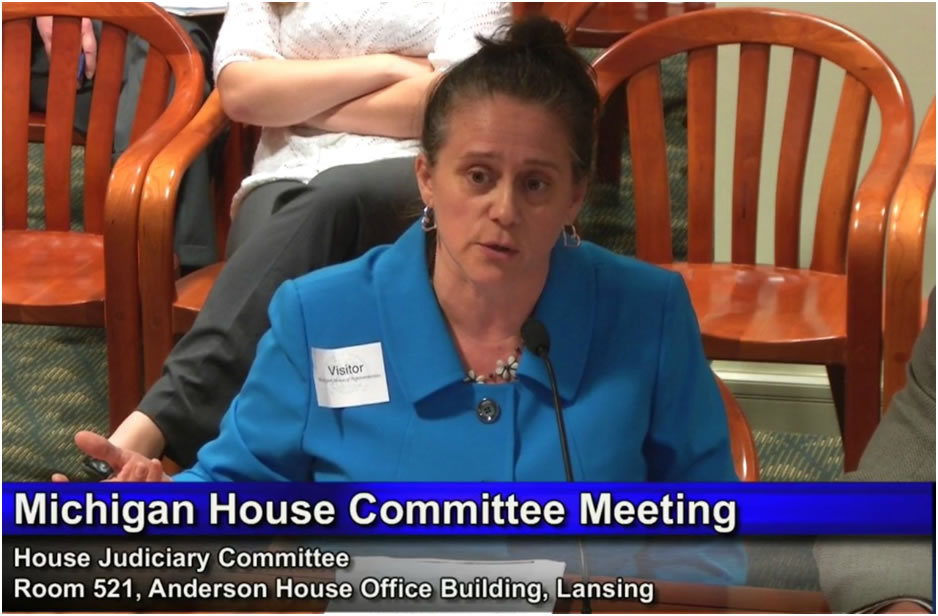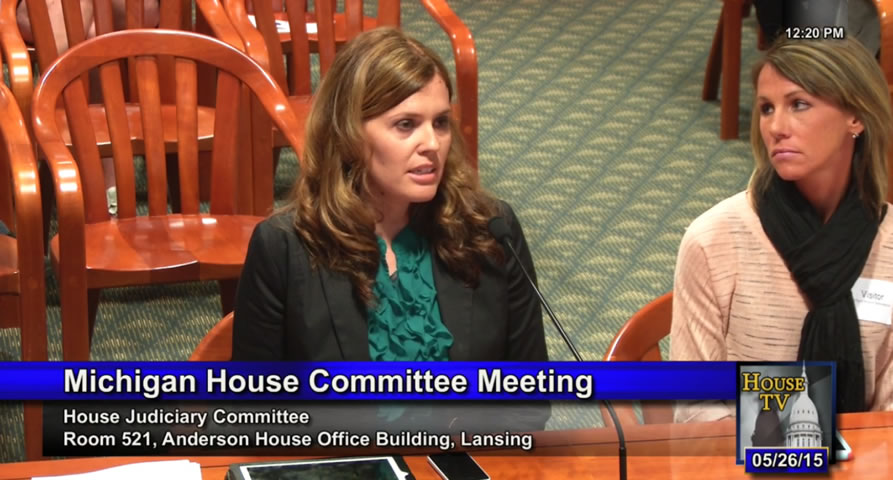
Jun 18, 2015 | Criminal Defense Attorney Michael Komorn, Marijuana Criminal Defense Attorney Michael Komorn, Medical Marijuana Attorney Michael Komorn, Michigan Medical Marijuana Criminal Defense Attorney Michael Komorn, News
On November 8th, 2008, by a majority of 63 percent, the citizens of the State of Michigan voted into law the constitutional initiative, Initiated Law 1 of 2008, ratified into law December 4, 2008, herein referred to as the Michigan Medical Marihuana Act, MCL 333.26421 et seq. (the “MMMA”).
The voters of the State of Michigan, who at that time had no reason to believe a need to prevent misconstruction, misinterpretation, or abuse of its intent, upon this day declare that certain basic rights afforded all the citizens of Michigan are not being recognized for the medical marihuana community, to the extent that the following rights must be decreed, declared, recognized, and adopted, as the
Michigan Medical Marihuana Patient Bill of Rights
All patients possess the following rights, without limitation:
- There shall be a presumption that registered patients and their caregivers are in compliance with the MMMA.
- The right to be treated reasonably, with dignity and respect, by law enforcement and the government, and by the medical community and private business in general. “Reasonable” should be based in part upon the best available medicine and science, and not upon emotion or politics.
- The right to be protected against arrest, prosecution, or any penalty.
- The right to be free from searches, seizures, and forfeiture.
- The right to equal protection under the law.
- The right to privacy, of any and all information related to patient or caregiver status.
- The right to the best medical care, and to the best medication in the proper delivery form, to treat their condition, disease, or debilitation.
- The right to safe, immediate access to a continuous supply of medication to treat their condition, disease, or debilitation, and the right to a choice of where to obtain that medication.
- The right to equal employment.
- The right to equal and fair housing.
- The right to be protected from denial of custody or visitation of a child.
- The right to speak, the right to remain silent, and the right to counsel.
- The right to civil remedies and punitive damages against those who violate any of these rights.
- The right to prosecute those who violate the protections of the MMMA.
- The right to protection under the Victim Rights Act of Michigan.

Jun 16, 2015 | Criminal Defense Attorney Michael Komorn, Legalization, Medical Marijuana, Medical Marijuana Attorney Michael Komorn, News
The Colorado Supreme Court ruled Monday Jun 15, 2015, that Employers’ zero-tolerance drug policies trump Colorado’s medical marijuana laws.
In a 6-0 decision, the Colorado Supreme Court affirmed lower court rulings that businesses can fire employees for the use of medical marijuana even if it’s off-duty.
Colorado became the first state to provide guidance on a gray area of the law. With the ruling, which was a blow to some medical marijuana patients and a sigh of relief to employers.
The decision came nine months after the state’s highest court heard oral arguments in Brandon Coats’ case against Dish Network.
Coats was rendered a quadriplegic by a car accident He had a medical marijuana card and consumed pot off-duty to control leg spasms. He was fired in 2010 after failing a random drug test.
Coats, who was a customer service representative for Dish, challenged the Douglas County satellite TV company’s zero-tolerance drug policy, claiming that his use was legal under state law. His firing had been upheld in both trial court and the Colorado Court of Appeals.
When the case went to the state Supreme Court, legal observers said the case could have significant implications for employers across Colorado. They noted that the ruling also could be precedent-setting as Colorado and other states wrangle with adapting laws to a nascent industry that is illegal under federal law.
At the crux of the issue was whether the use of medical marijuana — which is in compliance with Colorado’s Medical Marijuana Amendment — was”lawful” under the state’s Lawful Off-Duty Activities Statute.
That term, the justices said, refers to activities lawful under both state and federal law.
“Therefore, employees who engage in an activity, such as medical marijuana use, that is permitted by state law but unlawful under federal law are not protected by the statute,” Justice Allison H. Eid wrote in the opinion.
Current Colorado law allows employers to set their own policies on drug use.
Coats’ attorney Michael Evans, of Centennial-based The Evans Group, called the decision “devastating.”
He said he does not plan to take the case to the U.S. Supreme Court.
“You need the Colorado Supreme Court to stand up for its own laws,” he said. “The U.S. Supreme Court is not going to do that.”
Read More and See Related Info Here

Jun 4, 2015 | Criminal Defense Attorney Michael Komorn, Komorn Law Blog, News
The headlines read…
“How a sex toy put national spotlight on Michigan civil asset forfeiture laws targeted for reform”
“State Legislators Reconsider Forfeiture Laws That Turn Cops Into Robbers”
“Why Take My Vibrator?” Cops Legally Rob “every Belonging”
It’s been featured on many news outlets large and small.
Some of the main ones include Fox, MLive, Forbes, Washington Post, MMMA, and so many more.
Ginnifer Hency says that a police raid led investigators to seize a couple of guns, a small amount of cash and cell phones , medical marijuana. And also something very personal…
“My medicine for my patients, why a ladder, why my vibrator, I don’t know either,” Hency said during a Michigan House Committee meeting.
Click to play video
Ginnifer Hency’s vibrator was not an accessory to an alleged crime that a judge says did not occur. And that last part is creating quite a story that has now gone viral and raising questions about Michigan’s civil asset forfeiture laws.
“They’ve had my stuff for 10 months now,” Hency said.
Ginnifer and her husband Dean Hency say it all happened when their home was raided last July. They both are licensed medical marijuana patients and caregivers. They claim to be targeted by St. Clair County’s drug task force.
It began when Ginnifer says she walked into a medical marijuana licensing facility as it was being raided. “They asked me how much medicine I had in my backpack,” she said. “I said six ounces then they said to get a warrant for our house.”
The havoc they wreaked,” Dean said, “they just threw stuff around. Just dirt dumped all over the place.” “We were in complete compliance with the Michigan Medical Marijuana Act and they destroyed my house,” Ginnifer said.
But St. Clair County Sheriff Tim Donnellon says they were not, and added that officers did not take her vibrator and would never have a reason to. He says aside from that allegation, the task force’s actions were justified and par for the course.
Even so, a judge (read the courts opinion here – specifically the last page regarding Hency) dismissed the criminal charge of possession with intent to distribute against Ginnifer Hency two weeks ago. But here’s what she says happened when she went to the prosecutor’s office to get her property back.
“Lisa Wisniewski who is the assistant prosecuting attorney said ‘I can still beat you in civil court, I can still take your stuff.”
Michael Komorn who is the Hencys’ lawyer said. “This is bully tactics, we have your property we couldn’t get any charges to stick, we’re just going to keep it and drag it out.”
“Here’s a person who they took her property and they couldn’t even make the charges stick let alone get a conviction. So if there’s an example of why there needs to be reform it’s this.” added her attorney Michael Komorn.
“They left my (equipment) I used to grow ‘drugs’ – they left that,” Hency said when she testified. “Now that is what the state forfeiture laws are made for.” The St. Clair County Prosecutor’s Office has about a week to appeal a visiting judge’s decision to drop those charges against Ginnifer Hency.
When she heard that, Hency said, “I was at a loss. I literally just sat there dumbfounded.”
Hency told her story at a meeting of the Michigan House Judiciary Committee, which was considering several bills that would make this sort of legalized larceny more difficult.
She was joined by Annette Shattuck, another medical marijuana patient who was raided by the St. Clair County Drug Task Force around the same time.
“After they breached the door at gunpoint with masks, they proceeded to take every belonging in my house,” Shattuck said.
The cops’ haul included bicycles, her husband’s tools, a lawn mower, a weed whacker, her children’s Christmas presents, cash (totaling $85) taken from her daughter’s birthday cards, the kids’ car seats and soccer equipment, and vital documents such as driver’s licenses, insurance cards, and birth certificates.
“How do you explain to your kids when they come home and everything is gone?” Shattuck asked. She added that her 9-year-old daughter is now afraid of the police and “cried for weeks” because the cops threatened to shoot the family dog during the raid.
Although “my husband and I have not been convicted of any crime,” Shattuck said, they cannot get their property back, and their bank accounts remain frozen.
Last February The Detroit Free Press highlighted various other examples of the cruel, greedy pettiness fostered by civil forfeiture laws, which allow police to take assets allegedly linked to crime without so much as filing charges, let alone obtaining a conviction.
“Police seized more than $24 million in assets from Michiganders in 2013,” the paper noted. “In many cases the citizens were never charged with a crime but lost their property anyway.”
Now a bipartisan group of state legislators is trying to reform the laws that have turned Michigan cops into robbers.
The bills, which are backed by House Judiciary Committee Chairman Klint Kesto (R-Commerce Township), would require law enforcement agencies to keep track of all forfeitures and report them to the state police, prohibit the forfeiture of vehicles used to purchase small amounts of marijuana, and raise the standard of proof for forfeitures in cases involving drugs or public nuisances.
“We must bring culpability and transparency to the system and rein in the ability of police to indiscriminately seize the property of innocent citizens,” Kesto says.
Michigan was one of five states that received a D–, the lowest grade awarded, in a 2010 report on forfeiture abuse from the Institute for Justice. Michigan’s “preponderance of the evidence” standard, which allows the government to complete a forfeiture based on any probability greater than 50 percent that the asset is connected to a crime, was one reason for that low grade.
Bills introduced by Rep. Peter Lucido (R-Shelby Township) and Rep. Gary Glenn (R-Midland) would instead require “clear and convincing” evidence, which is more demanding than the current rule but not as strict as “beyond a reasonable doubt,” the standard in criminal cases.
None of the bills addresses another major problem with forfeiture in Michigan:
Law enforcement agencies keep 100 percent of the loot, which gives them a strong incentive to target people based on the assets they own instead of the threat they pose to public safety.
Testifying (play video) before Kesto’s committee on Tuesday, Charmie Gholson, founder of Michigan
Moms United, argued that cops’ financial stake in forfeitures helps explain why the arrest rates for consensual crimes involving drugs and prostitution are so much higher than the arrest rates for violent crimes such as rape, robbery, assault, and murder.

Charmie Gholson (Image: Michigan House of Representatives)
In Michigan, Gholson said, the arrest rate (the share of reported incidents that result in an arrest) is 82 percent for prostitution, compared to 44 percent for murder, 39 percent for felonious assault, 21 percent for robbery, and 15 percent for rape. “It’s because when they catch you with a prostitute, they take your car,” she said. “Civil asset forfeiture decreases public safety.”
Gholson thinks money from forfeitures should go into the general fund, which would eliminate such perverse incentives. She also argues that forfeiture should require a conviction based on proof beyond a reasonable doubt, which would effectively abolish the practice of civil (as opposed to criminal) forfeiture. The Institute for Justice, which has been fighting forfeiture abuse for years, agrees.
Both of those reforms were recently adopted by New Mexico, which got a D+ in the 2010 Institute for Justice report. The New Mexico law also bars police and prosecutors from evading state limits on forfeiture by pursuing seizures under federal law through the Justice Department’s Equitable Sharing Program.
Last month legislators in Montana, which like New Mexico got a D+ in 2010, likewise voted to require a conviction prior to forfeiture.
But police and prosecutors in Montana will continue to keep all the proceeds from forfeitures, and they are still free to engage in joint forfeitures with the feds, which are subject to a lower evidentiary standard.
Compared to the reforms in New Mexico and Montana, the changes proposed in Michigan are pretty modest. But forfeiture critics hope the new comprehensive reporting requirement will set the stage for more ambitious reform by showing how the profit motive warps law enforcement priorities.
“You need more details about how seizures are happening,” Lee McGrath, legislative counsel at the Institute for Justice, told the Free Press. He said such data will expose the myth that “these forfeitures target big international criminal syndicates.” McGrath called the bills “a solid first step toward the ultimate goal of ending civil forfeiture.”
Michael Komorn is recognized as a leading expert on the Michigan Medical Marihuana Act. He is the President of theMichigan Medical Marijuana Association (MMMA), a nonprofit patient advocacy group with over 26,000 members, which advocates for medical marijuana patients, and caregiver rights. Michael is also the host of Planet Green Trees Radio, a marijuana reform based show, which is broadcast every Thursday night 8-10 pm EST. Follow Komorn on Twitter.


Jun 1, 2015 | Blog, Criminal Defense Attorney Michael Komorn
Everyday, I get calls to my office from medical marijuana patients and caregivers who have been raided or pulled over by police. Often times, these individuals are not arrested, and little if any paperwork is left behind by the various Narcotics Enforcement Teams.
Not only will these agencies leave little to no paperwork, but they’ll leave you with much less than what you owned prior to their visit. Everything from cars, laptops, grow equipment, cell phones, even family heir-looms; If there is marijuana in your house or car, there’s a good chance that the police will seize your personal property.
In fact, the police can seize what they want without charging you with a crime. Such was the case with Tarik Dehko, a grocer from Flint, Michigan. When he went to check his bank account, he instantly thought he had been the victim of fraud, as all of his $35,000 had been taken. When he contacted his bank, the answer he got was much worse: the Federal Government had seized all of his money out of his business account, simply because they didn’t like the way he was making deposits. Tarik had never been notified, and has not been charged with a crime, yet the federal government was permitted to take his money.
Anyone at all familiar with the forfeiture process knows that the police use it as a way to generate revenue for their own department by making the owner do buy backs, or selling the items at auction. Today’s forfeiture laws are cash cows for police, and it is not surprising that we see police driving fancier cars, motorcycles, or even horses. They are armed more like army rangers than civilian law enforcers, and open new departments or acquire SWAT teams with all the surplus money generated through this process.
But there is a light at the end of the tunnel. I have been able to successfully reacquire the items seized from many of my clients without them having to pay the police agencies who stole them. Before you cut a big check to your local sheriffs department, contact Komorn Law and get what is rightfully yours returned to you.
Related: Pardons for Medical Marijuana Patients in Nevada?
Michael Komorn is recognized as a leading expert on the Michigan Medical Marihuana Act. He is the President of the Michigan Medical Marijuana Association (MMMA), a nonprofit patient advocacy group with over 26,000 members, which advocates for medical marijuana patients, and caregiver rights. Michael is also the host of Planet Green Trees Radio, a marijuana reform based show, which is broadcast every Thursday night 8-10 pm EST. Follow Komorn on Twitter.














